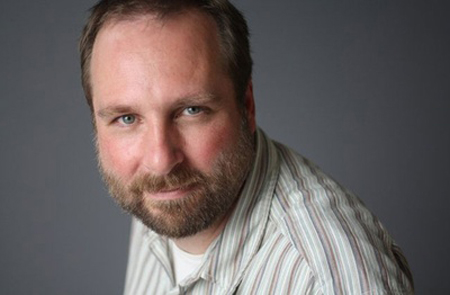
Stephen R. Platt is a historian of late imperial China, specializing in the nineteenth century and China’s foreign relations. He teaches at the History Department at the University of Massachusetts Amherst. Last year, Platt won the world’s most lucrative prize for historical writing – the Cundill Prize at McGill for his book, Autumn in the Heavenly Kingdom: China, The West, And The Epic Story of The Taiping Civil War. Professor Platt will give the Cundill lecture on Monday, Oct. 21 at Faculty Club Ballroom, (3450 McTavish) – 5:00 p.m. The lecture is titled, Imperial Eclipse: The Long Road to the First Anglo-Chinese War. The names of this year’s shortlisted Cundill nominees will also be announced at the lecture. The event is free and open to the public. For more information, go here.
Your research focuses on modern Chinese history – what is it about this topic that fascinates you so much?
I have been captivated by modern Chinese history ever since I first lived in China back in the 1990s after college. I’m not sure what first sparked my interest, though it must have had something to do with being an outsider, and how because I was an outsider people I met would sometimes trust me with stories they hadn’t shared publicly, sometimes not even with their own family members – about their experiences of the Cultural Revolution, or the mass campaigns of the Great Leap Forward, or even the Korean War. I began reading more widely about the periods they were telling me about, then delved into earlier parts of modern Chinese history, and realized that a historian could never exhaust the well of powerful stories that live there.
My job in China was to teach English to young Chinese students, and to help them understand life in America where I had come from, but by the time I came home I was determined to teach and write about China instead.
How does the study of China’s history illuminate modern-day China?
There are few places in the world more immediately engaged with their history than China. It’s not just a matter of the breadth and long span of that history, but in how keenly aware China’s current leaders are of their recent predecessors, and how deeply students are taught to internalize the failures and triumphs of their nation. Today’s Chinese rulers see the present moment as in some ways a culmination of decades spent rebuilding China from the disasters of the nineteenth and twentieth centuries. For state and society both, the ways in which Chinese historians tell the story of the country’s recent past sets the dominant tone for domestic politics, for the inspiration of youth, and for relations with foreign countries.
One of my most powerful and lasting impressions from when I first lived in China was of how much China’s history mattered to my students, in visceral and determinist ways that seemed to have no analogue in the society where I had grown up.
You are giving the Cundill Lecture as the winner of last year’s Cundill Prize, the largest prize for historical non-fiction in the world. How has your life changed since winning the award?
Aside from the more obvious benefits of winning a major prize such as this – greater exposure, more invitations to give talks, expressions of interest in my work from quarters I never would have expected – there is a more intangible one, namely a heightened confidence to stay the course in my particular brand of scholarship. I could not have imagined a better kind of encouragement to keep doing what I’m doing. The generous funds attached to the prize, as well as the prestige it conveys, have made it possible for me to continue with my work at a more liberated pace, on my own terms, with greater intellectual freedom than ever before.
Your lecture is titled, Imperial Eclipse: The Long Road to the first Anglo Chinese War. What will audiences learn from your talk?
They will, I hope, gain an unexpected perspective on the wider context of the Opium War of 1839-1842, otherwise known as the First Anglo-Chinese War, in which a small British army supported by a handful of gunships managed to achieve a near-total victory over the forces of a vast empire halfway around the world, whose subjects numbered in the hundreds of millions.
It was, moreover, a war almost unrivalled in its moral indefensibility, fought on behalf of drug smugglers. That conflict has long served as the starting-point of modern Chinese history – the archetype of what China has been rebuilding itself from ever since – with the result that it often seems set in stone, as if China had always been weak and Britain strong, as if conquest and drug trafficking had always been the core of British policy in China, and as if China were somehow by nature unable to mobilize against threats at its borders. But if we look beyond the immediate circumstances of the war, we can see that commonplaces like these are misleading. In my lecture I will give a different view, ranging back through the decades that preceded the Opium War to trace some of the more significant changes – both within China and abroad – that set the stage for this unprecedented war and made its outcome possible.
